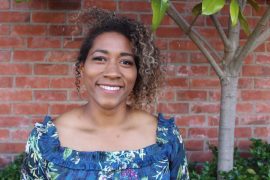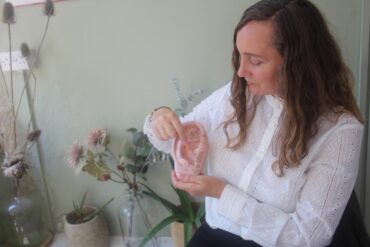- Embedding action words: The use of action words (verbs) is paramount when you are “narrating” pretend play for your child! (e.g. “Doggie is driving to the park for a walk!” or “What is doggie doing?”)
- Expansion: When we are expanding our child’s language skills, or narrating their imaginative play, we are taking what they are saying and expanding upon it!
Child: “Baby wants pancakes!”
Parent: “Yummy, what do we need to cook the pancakes for the baby?”
Child: “Mmm, refrigerator!”
Parent: “Oh yes, we need ingredients in the refrigerator! Let’s see, I think we need eggs…what else?” (while pointing to other ingredients).
The best part about imaginative play is that there is really no “right” way to do it.
You are basically following your child’s lead and giving little pieces of language/enrichment to expand their language development through play.
Furthermore, from a more academic standpoint, the development of imagination through pretend play will eventually lead to further storytelling skills and pre-academic concepts that will help them when they enter school.
Have you ever noticed how the child with the “wildest imagination” has the rest of the children on the playground following them around? This is because they have “acted out” scenarios and feed into their peers’ imaginations and sense of wonder in the world!
From a social aspect, having a healthy imagination assists in developing friendships and cooperative play.
To conclude, the possibilities for language and cognitive development through the use of pretend play are endless!
The key is to let your child and their imagination take the lead. This builds upon their creativity to naturally incorporate higher level thinking and processing.
Stephanie is a nationally certified and practising speech-language pathologist with eight years of extensive experience working in the field. Stephanie has a naturalistic and holistic approach to speech, language and feeding development. She works with children from 4 months to 14 years of age in early intervention and in public schools. Stephanie also provides private consulting to parents remotely. You can find out more on her website and join her Facebook and Instagram communities.










